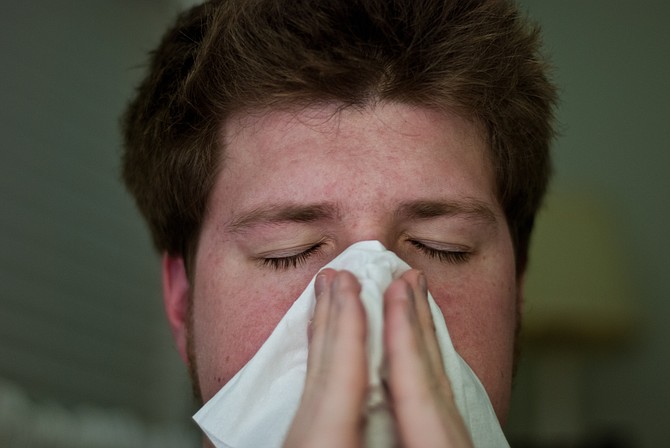With the holidays comes a higher likelihood of getting an upper-respiratory infection. Photo courtesy Flickr/William_Brawley
As we head into the winter months, we all look forward to the holidays and festive times with family and friends. Unfortunately, we also have to anticipate a higher likelihood of getting an upper-respiratory-tract infection. On many occasions, people ask me why they are more likely to get a cold in the winter months in comparison to the summer months.
As a family physician with training to cover all concentrations of medicine with a general approach, I often consult my colleagues with a more specialized concentration in medicine for more specific answers.
Infectious-disease specialist Dr. Leandro Mena of the University of Mississippi Medical Center and pediatrician Dana Carbo Bryant say that during the colder months, people tend to spend more time in close quarters, which provides a greater opportunity for transmission of airborne pathogens. The viruses are always present, but because people are inside more in closer contact, the viruses spread more easily. This explanation was consistent from three other doctors from three other specialties.
This article talks about likelihood, which deals with chance. We all have a chance of any outcome, but we have some control of changing the likelihood of infection by being informed and making good decisions.
Ways that we can decrease our chances are simple, but we must first be aware of how these effective, simple techniques can impact our likelihood of getting an upper-respiratory-tract infection, which may lead to a more serious illness.
Wash your hands.
Hand washing is one of the most effective ways to reduce your risk of getting a cold, the flu or another form of a URI. Wash your hands often, especially when you come into contact with someone who is sick. Wash your hands thoroughly (15 to 20 seconds) with soap and water. Avoid hand-to-hand passage of germs and droplet sprays from sneezing and coughing. Use alcohol-based hand gels when washing is not possible.
Wear a face mask.
This is an advised technique when you have to be in close contact with a sick person for an extended amount of time. An example would be a person that you live with such as a spouse with the flu or another severe URI. This is especially true if you have a compromised immune system due to a chronic illness or have a chronic lung disease such as asthma or bronchitis.
Don't share.
This is an advised technique when you are in close contact with a sick person. Sharing items such as beverages, food or personal items can increase your likelihood of becoming ill.
Don't touch your face.
Keeping your hands away from your face can decrease your likelihood of contracting an URI. When you are exposed to a sick person, practicing techniques such as not biting your nails or putting your hands near your mouth, eyes or nose can help decrease the risk of getting sick.
Avoid crowds when you can.
Avoiding crowds when not necessary during influenza season (especially when there's a local outbreak) can decrease your likelihood of contracting an URI. This may not be a practical suggestion for everyone. However, if you are at a high risk of catching a cold or influenza or are at risk for developing complications from these infections, try to avoid crowded areas where people are obviously sick.
Get a flu vaccine.
Getting a seasonal flu vaccine can decrease your likelihood of contracting an URI. Each year, the World Health Organization tries to determine which strains of the influenza virus will be most dangerous in the upcoming flu season. Medical experts develop vaccines for the strains. Flu vaccines are available and recommended for most people ages 6 months and older. I personally get mine every year. Also note that if someone that you are exposed to has been diagnosed with the flu, you can take flu medication prescribed to you by your medical provider to decrease your chances of contracting the illness.
Get proper rest and nutrition.
Getting proper rest and nutrition help to decrease your chances of contracting an URI. So says my late grandma Mudeya to whom this article is dedicated.



Comments
Use the comment form below to begin a discussion about this content.
comments powered by Disqus